Rebekah Koffler predicts Alexei Navalny 'died in the hands of Russian intelligence'
'Putin's Playbook' author Rebekah Koffler joined 'Fox & Friends First' to discuss how the White House is expected to take action against Russia over Alexei Navalny's death.
Alexei Navalny is dead. He was 47 years old. A dissident and leader of the opposition movement advocating for the defeat of Russian President Vladimir Putin's party of power, Navalny died on February 16th in a penal colony, IK-6 Melekhovo, dubbed "Polar Wolf," in the Yamalo-Nenets autonomous district in northwestern Siberia.
Russian intelligence, whose operatives attempted to assassinate Navalny in August 2020 by poisoning him with a military-grade nerve agent, were likely behind his untimely death.
While in the Russian Gulag, Navalny – who was serving a 19-year jail term on trumped-up charges of extremism – exchanged letters with a Soviet-era Jewish dissident, Natan Sharansky, who had spent almost nine years (1977–1986) in a forced labor camp, based on fabricated charges of treason and espionage. These handwritten letters between the two, which I had the honor to help translate from Russian into English, gave me a window into Navalny’s mind and the thinking of Russian dissidents like Navalny and Sharansky, and into the Russian Gulag system, established in the U.S.S.R. by the April 15, 1919, decree "On Forced Labor Camps."
What follows are my insights gleaned from this chilling correspondence.
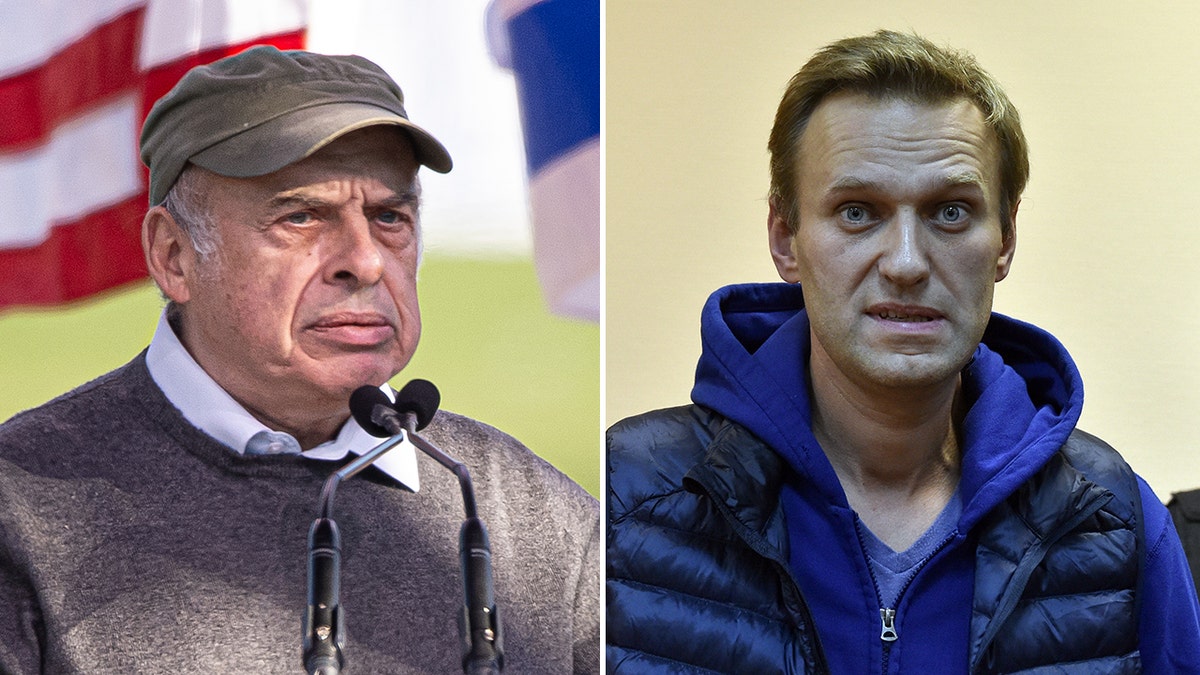
Natan Sharansky and Alexei Navalny. (Noam Galai, Getty Images/VASILY MAXIMOV/AFP via Getty Images)
Alexei Navalny, and Russian dissidents like him, were driven by what Natan Sharansky described "the virus freedom," a phrase Sharansky used in his seminal memoir called "Fear No Evil," which he wrote in 1986 after he was released from the Gulag, following an international campaign led by his wife Avital advocating his release. Navalny thanked Sharansky for writing the book, because it "has helped and continues to help" him survive the imprisonment, much of which he spent in the most severe type of prison cells known as PKT or SHIZO.
PKT, which stands for "facility of carcer (cell) type," is solitary confinement where prisoners are kept within their cells at all times, with no visits or phone calls. The seven-by-10-foot concrete cell has a bed chained to the wall. The inmate is allowed 35 minutes to write letters on numbered paper issued by the prison. Two books are also allowed.
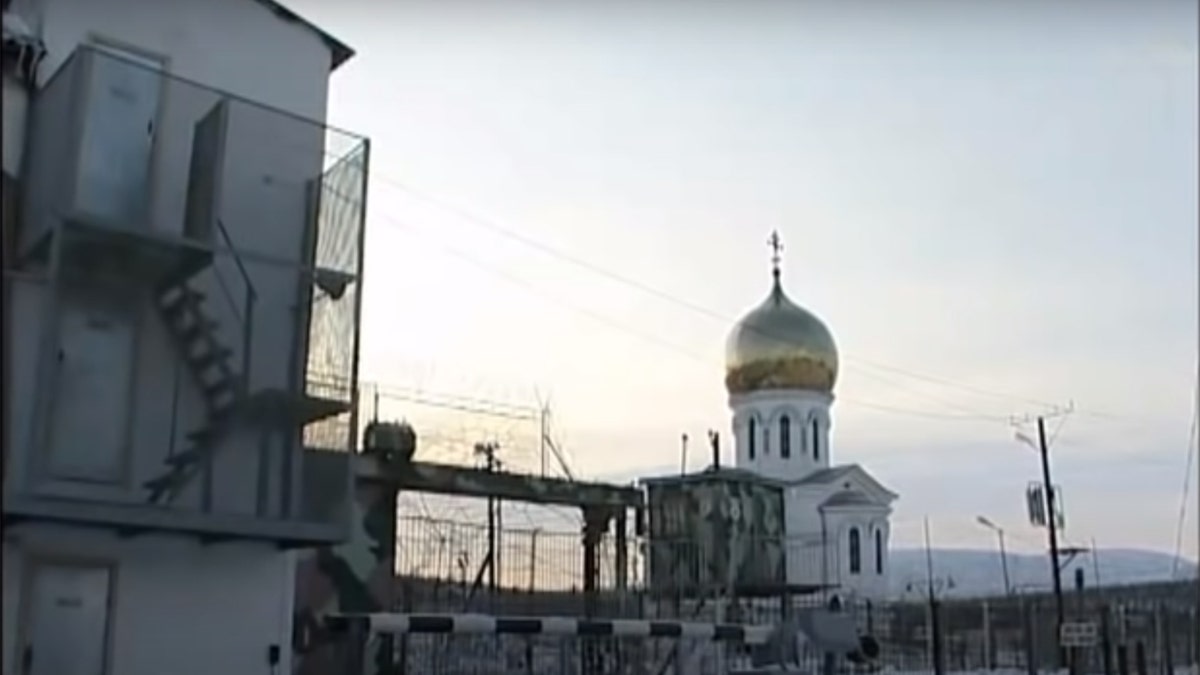
Inside th harsh Arctic jail Polar Wolf - officially called IK-3 in Kharp village - where Putin’’s leading foe Alexei Navalny, 47, was moved, a penal colony notorious for beatings, torture, and ‘breaking’ inmates including political prisoners. Navalny died last week. (East2West)
SHIZO, which stands for "punishment isolation cell," is the most extreme punishment for Russian prisoners. It is a similar concrete cell with an iron bunk bed chained to the wall, an iron table, an iron bench, a sink and a hole in the floor. But the bunk bed is raised by the guards at 5 a.m., and the mattress and pillow are removed. No food or personal belongings are allowed.
SPACE WARFARE: US, CHINA, AND RUSSIA ARE GEARING UP FOR THE NEXT FRONTIER OF ARMED CONFLICT
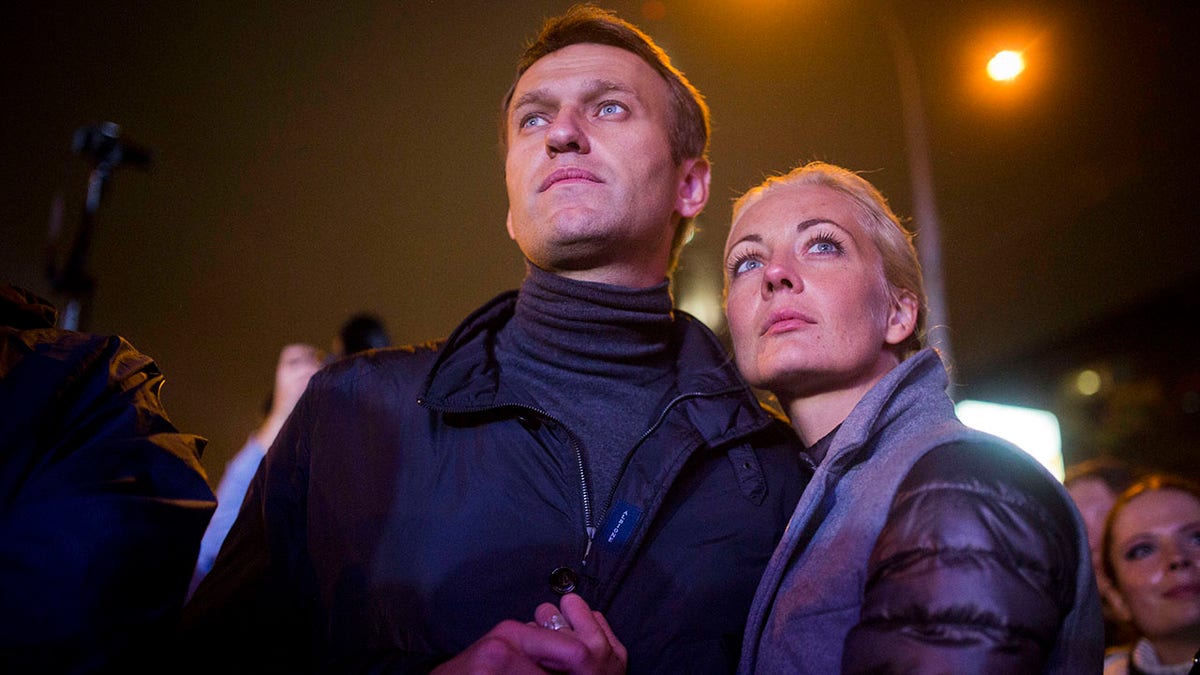
Russian opposition leader Alexei Navalny with his wife Yulia in Moscow, Russia, in September 2013. (AP/Evgeny Feldman)
At 9 p.m., the bed is lowered, and the mattress and pillow are brought back in. There are two cameras under the ceiling. Inmates are not allowed to lie on the floor. Only one book is allowed in SHIZO.
The cell is cold and damp. With sub-zero temperatures outside and concrete floors inside, the prison cells are frigid with temperatures sometimes dropping to minus 20 degrees Fahrenheit. There might be water on the floor. And there is no ventilation and no air circulation.
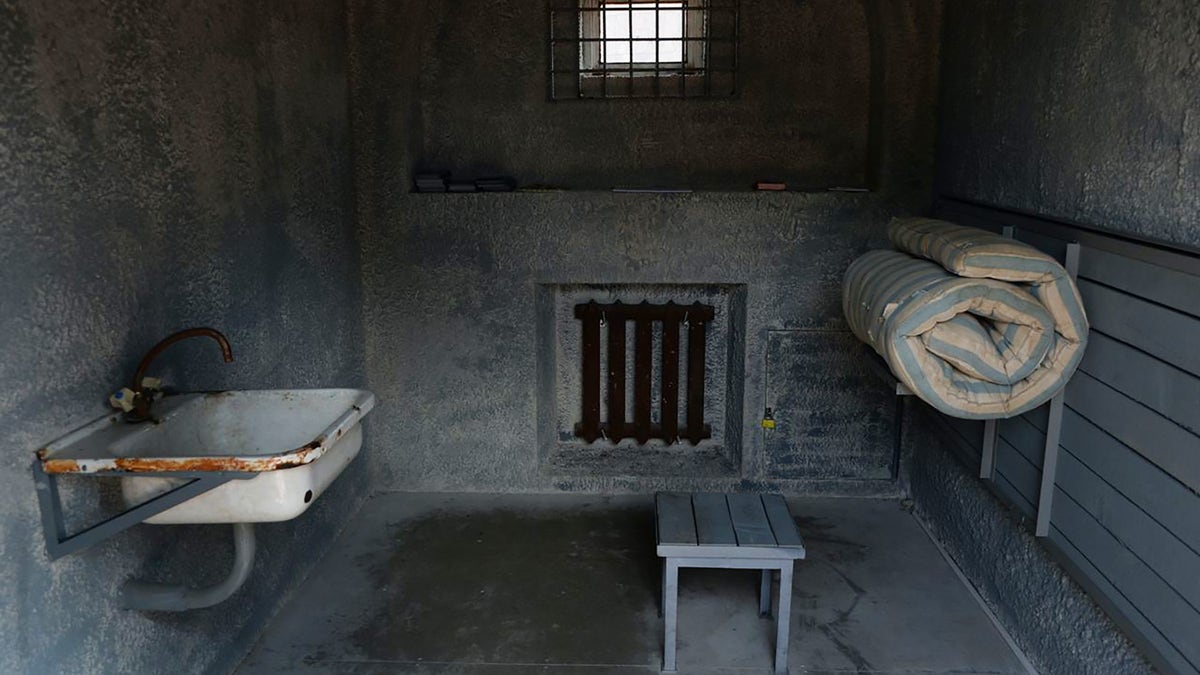
Recreation of Alexei Navalny's punishment cell on display in Vilnius, Lithuania (East2West)
You can end up in a punishment cell for offenses such as washing your face at the wrong time or failing to button up a prison uniform. The maximum term in PKT is six months, and in SHIZO it is 15 days, by law. But the guards have a work-around for this rule by alternating between the two and by finding another violation quickly, sometimes on the same day that a prisoner is released from a SHIZO.
". . . I was held in the PKT," writes Navalny, "and now I am writing from SHIZO — it will be 128 days in total." Navalny drew inspiration from "Fear No Evil," which Sharansky envisioned "as a sort of a textbook or manual for how to behave in a confrontation with the KGB." He wanted to help "his friends and comrades-in-arms" who were "either incarcerated in gulags or in a battle." Having learned from the book that Sharansky once spent 400 days in the "punishment cell" on decreased food rations, Navalny wrote that "one understands that there are people who pay much higher prices for their convictions."
CLICK HERE TO GET THE OPINION NEWSLETTER
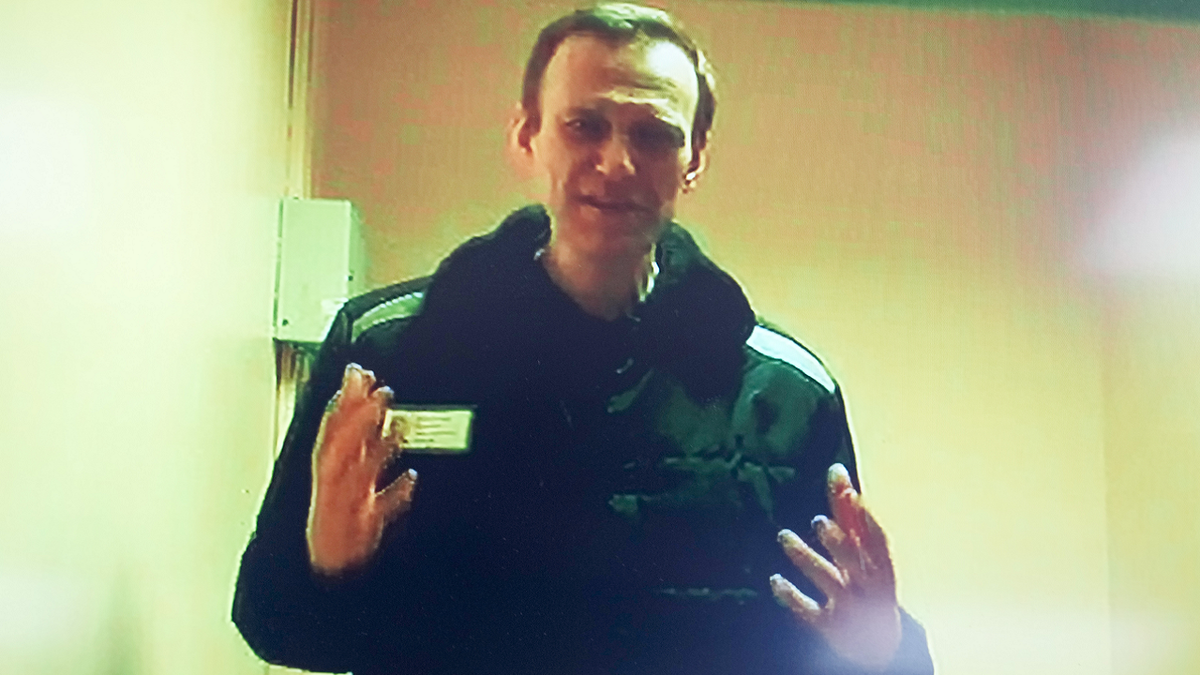
Russian opposition leader Alexei Navalny is seen on a TV screen as he appears by video link in a Moscow courtroom on Wednesday, April 26, 2023. (AP/Alexander Zemlianichenko)
Navalny wrote that, regretfully, the KGB invented a "vaccine" against the "virus of freedom" whose ingredients are "little things," such as "the belief that it is possible to modernize authoritarianism." He blamed himself and other dissidents for "naively" thinking that "there was no going back to the old ways," for thinking that "for the sake of good, it’s okay to rig elections a little bit here, or influence the courts a little bit there, and stifle the press a bit over here."
Nevertheless, Navalny was hopeful for a brighter future for Russia. The "virus of freedom," is far from being eradicated," he observed. Referring to Russia’s invasion of Ukraine, he wrote "It is no longer tens or hundreds as before, but tens and hundreds of thousands who are not scared to speak out for freedom and against the war, despite the threats. Hundreds of them are in prisons, but I am confident that they will not be broken and they will not give up."
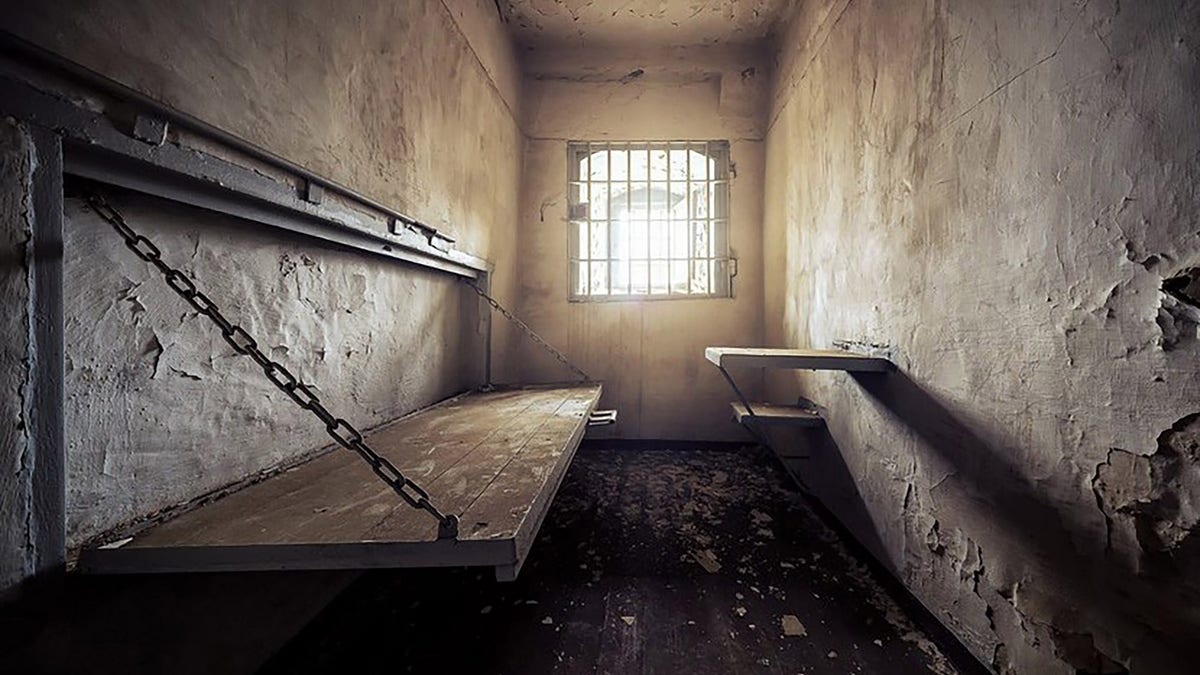
A Russian punishment cell similar to the one the late Alexei Navalny would have been kept in. (East2West)
What struck me most was the remarkable sense of humor that Navalny maintained despite the utterly inhumane conditions that he was held in and being denied medical care. Navalny joked that there is no better place to spend Holy Week than in SHIZO.
In his responses, Sharansky likely wanted to help Navalny maintain his already incredibly positive and free spirits by also using humor, very dark at times, which is characteristic of Russian and Soviet dissidents. "Judging by all of your time in SHIZO, you will soon beat all of my records. I hope you don’t succeed in this," he wrote, calling the punishment cell his "alma mater."
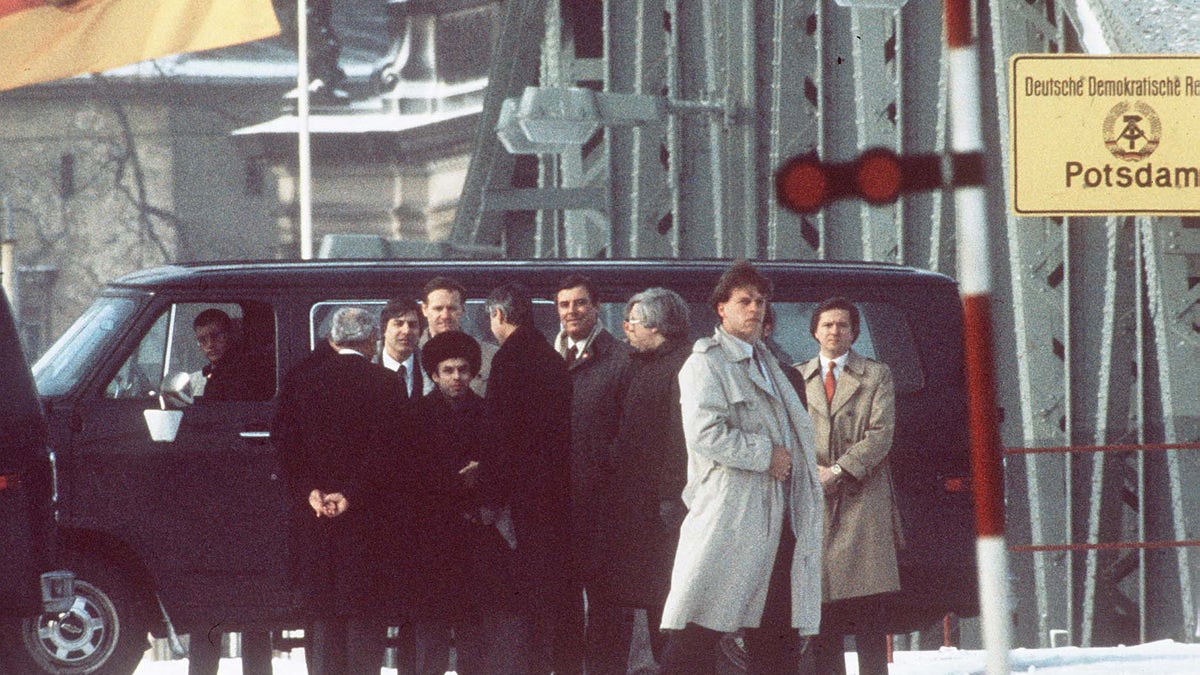
BERLIN, GERMANY - FEBRUARY 11: Former Soviet dissident Natan Sharansky (with hat) shown in a file photo dated February 11, 1986, during a major East-West prisoner exchange that took place on the Glienicke Bridge between Potsdam, East Germany, and West Berlin. He had been jailed for 13 years by a Moscow court in 1978 on spying charges, provoking a worldwide storm of protest. (Photo credit should read STF/AFP via Getty Images) (Photo credit should read STF/AFP via Getty Images)
Sharansky called Navalny, whom he admired, a dissident "with a style." He wrote, "My horror over your poisoning changed to amazement and exhilaration when you started your own independent investigation." Sharansky was likely referring to Navalny duping the FSB operative from Russia’s elite toxins team, Konstantin Kudryavtsev, into how he was able to have poisoned Navalny with a military-grade nerve agent Novichok planted in his underpants. Navalny, who almost died after being poisoned, had pretended to be a Russian National Security Council official debriefing Kudryavtsev in a phone call.
CLICK HERE TO GET THE FOX NEWS APP
Sharansky encouraged Navalny to "maintain your inner freedom," "no matter how hard it may be physically." "By remaining a free person in prison, you, Alexsei, influence the souls of millions of people worldwide . . . you are today more free than many (if not most) people in both parts of our world."
Eerily, Sharansky predicted Navalny’s death in these words: "But I know that for your freedom you are having to pay . . . with health, worries for your family, and eventually with your life."

